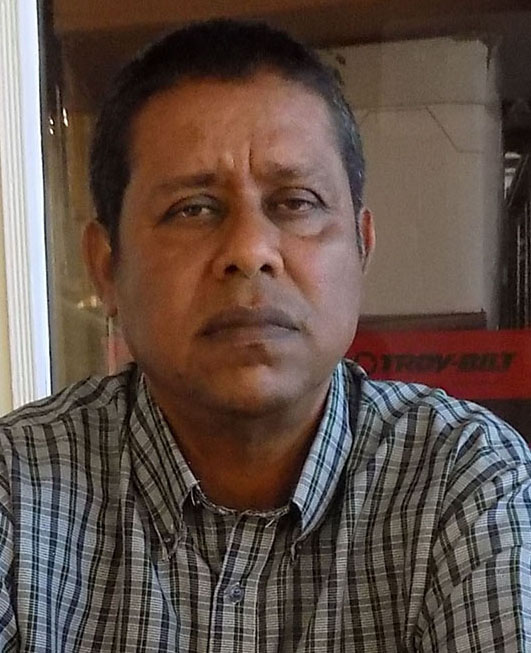Chief Executive Officer Nand Persaud and Company Ltd, Mahendra Persaud, told the Stabroek Business in an interview earlier this week that Guyana could well find itself in a position where its export capabilities become seriously compromised on account of what he says is an image of the country that has been fashioned out of the belief that it is a high risk insofar as the ‘export’ of illegal drugs is concerned.
The comment came during an interview with Persaud on a range of issues relating to the rice marketing operations of the company following the disclosure that a ship purportedly containing a shipment of rice originating in Guyana had also been found to contain 1.5 tonnes of cocaine valued at around US$350 million.
A report in a section of the local media had stated that the cocaine “had been linked to containers of rice exported by a major Berbice miller,” however, the local Customs Anti-Narcotic Unit had stated that the outcomes of its own probe did not substantiate that assertion. Persaud himself has told this newspaper that while he was aware of the incident, it was the shippers and not his company that had been the subject of the probe here. That, notwithstanding, Persaud told Stabroek Business that as an exporter he considered it necessary to draw attention to what, frequently, is the hazardous environment in which businesses frequently operate. He said that there was no doubt that incidents of the kind could do great harm to his own operations and to the country’s rice export operations as a whole.
In a media release following the August drugs seizure in Germany, the company had said that while its containers had been “scanned by Customs and it was clear that there were no anomalies” it was concerned that that type of incident could occur again.
Asserting that this is the third occasion in which cargo exported by his company had become caught up in such a situation, Persaud said that operationally, a great deal of the company’s effort goes into such measures as to ensure as far as possible that nothing is overlooked in an effort to ensure the cargo is not shipped in a condition that leaves it vulnerable to tampering though he conceded that “one can only do so much” to protect the cargo.
And in the wake of the narcotics occurrence, Persaud told Stabroek Business that he was supportive of the very recent Shiprider Agreement signed between the United States and Guyana which, while widely believed to be, from Washington’s perspective, part of a wider foreign policy strategy to apply additional pressure on the Maduro administration in Venezuela, has been tagged as a collective hemispheric effort spearheaded by the US to tighten the noose around the movement of narcotics in hemispheric waters. Persaud says that his support for the Agreement is driven by the hope that it will serve as a deterrent to drug-running in hemispheric waters which he says was posing an increasing threat to the country’s international trading operations.








